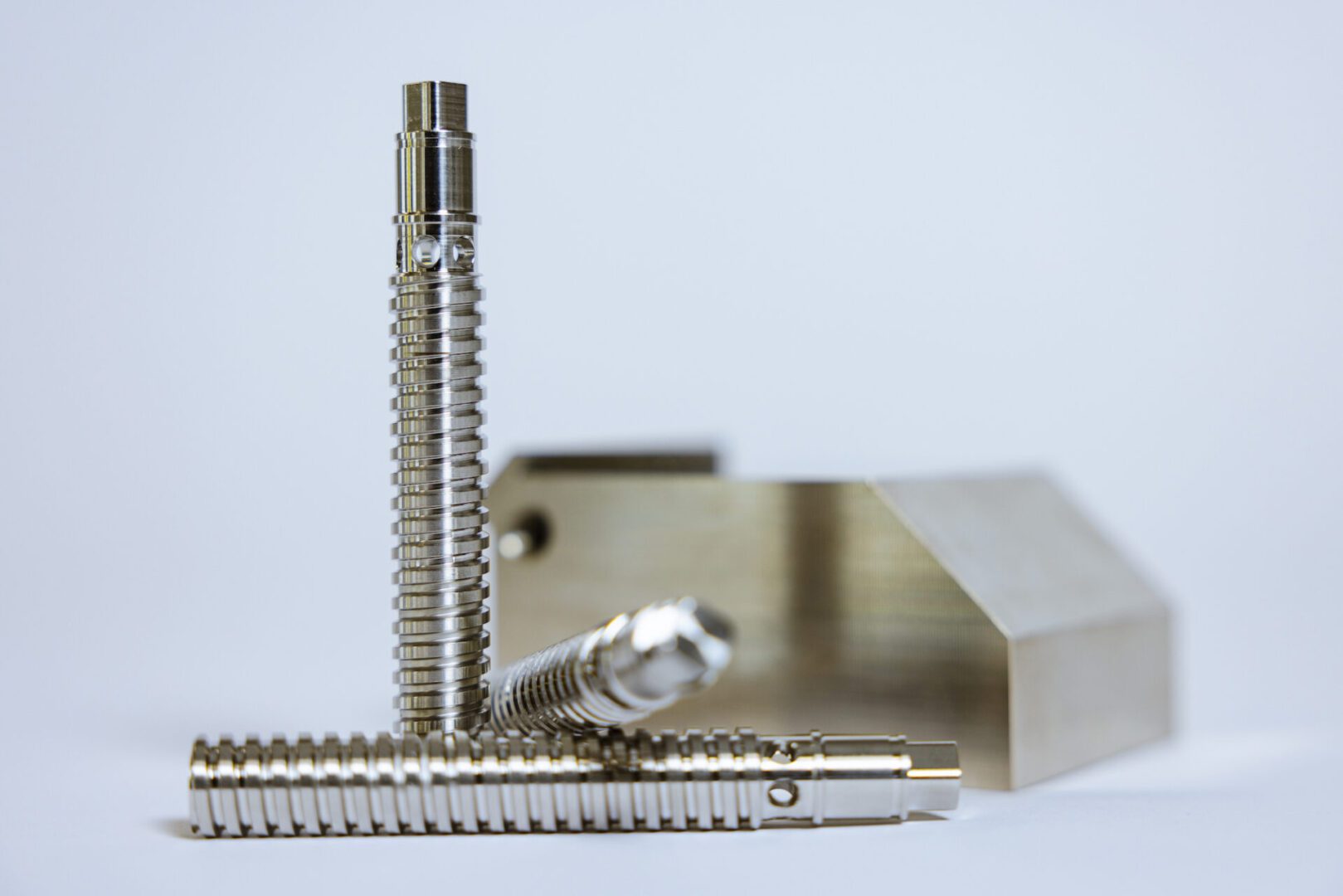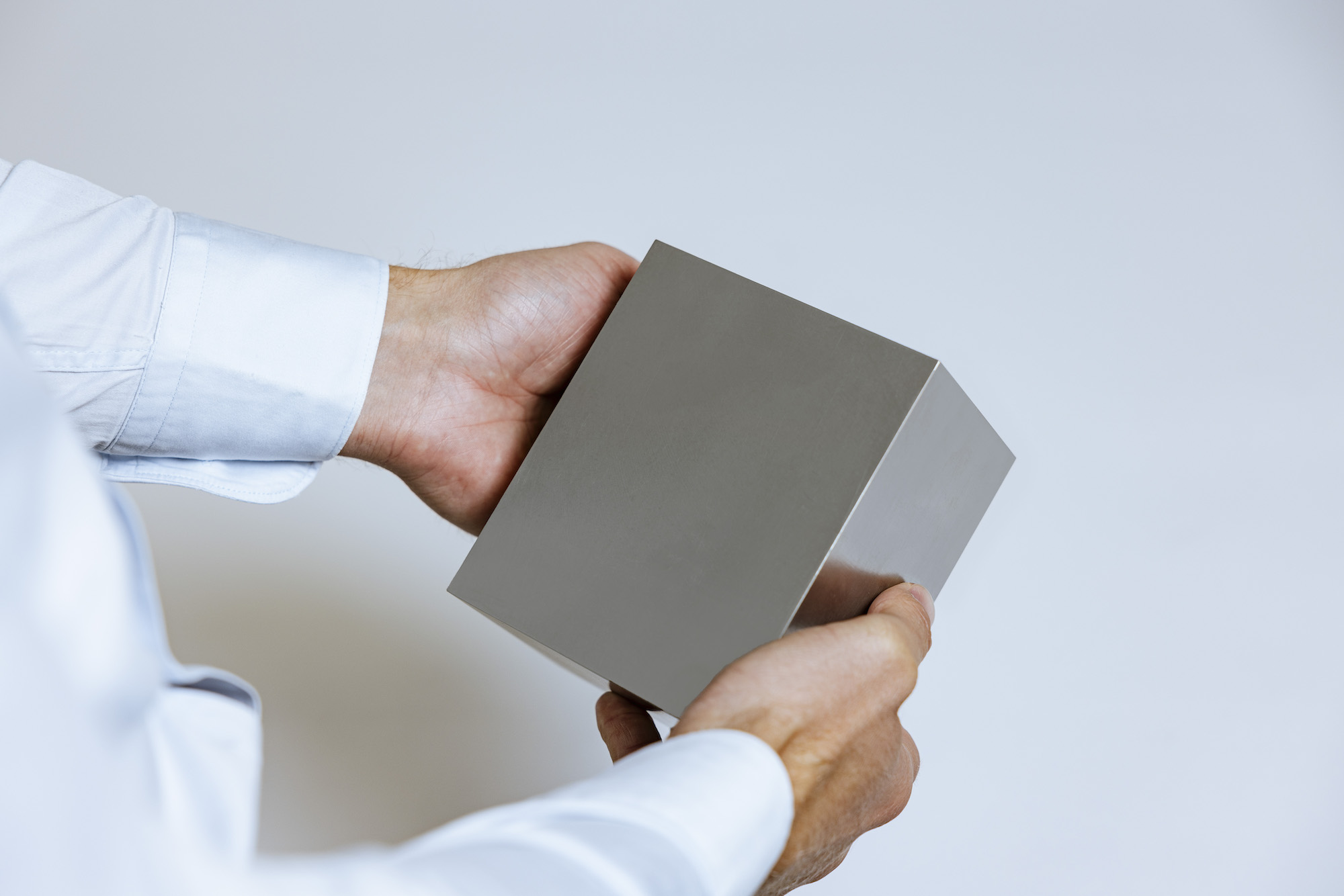Nickel was long regarded as a worthless byproduct of a copper mine. But today, Nickel and its alloys are widely used in various demanding markets. We not only look at its application in semiconductors, aerospace, and petrochemicals, but also discuss a concrete case involving a unique product: a fireworks fountain. Nickel ore was easily mistaken for copper ore, which is where the name originates. German miners attributed this to certain spirits, known as Nickeln. These spirits, much like Kobolds (think cobalt), were believed to cause the confusion.

Parts made from a Nickel alloy
Use of Nickel
Approximately 65% of the world’s Nickel production is used in Stainless Steel and 20% in other Steel and non-ferrous alloys. The remaining 15% is used for electroplating with Nickel or applications such as electronics. For Metel, the 20% used in Steel and non-ferrous alloys is particularly interesting, as these are crucial for specialized industries like aerospace, military applications, and others due to their unique properties. It is worthwhile to discuss this per market
Application of Nickel in the Market
We discuss a compelling application of Nickel for various markets. If your market is not listedtranslated as: “And do you want to know more about the use of Nickel for a specific application? Then contact us at 0416 724 800 or send an email to n.kesteloo@metel.nl.
Nickel in Semiconductors
The semiconductor industry challenges itself to drastically improve its performance every few years. New technology comes with its own requirements and challenges, for which Nickel alloys can sometimes be part of the solution. For example, in laser applications, the use of Nickel alloys is essential. Their high heat resistance combined with strength makes these high-performance metals a crucial building block for the next generation of machines.
Nickel in Aviation
In aviation, Nickel is primarily used…”often used in the hot sections, the parts located close to the engine. There are certain Titanium alloys that can withstand temperatures up to 800˚C, while some Nickel alloys are heat resistant up to 1,400˚C! The decision-making process for the aerospace industry is complex because, for instance, the specific gravity of Inconel 625® is similar to that of steel (+/-8 g/cm3), whereas Titanium has a specific gravity of 4.5 g/cm3. Engineers strive to manufacture as many components as possible from lightweight metals because this saves on fuel costs. Inconel alloys® are therefore used exclusively for components where heat resistance or strength (Inconel alloys® are, for example, stronger than Titanium) is crucial.
Nickel in Petrochemicals
Nickel alloysare also widely used in the petrochemical industry. Not so much where combustion occurs, but specifically in the piping systems. The highly corrosive, aggressive liquids pass through piping made from materials like Inconel® 625 or, increasingly, Hastelloy® C276. The latter alloy boasts high chemical resistance. If these pipes were made from stainless steel, they would need to be replaced annually. By opting for the right Nickel alloy instead of stainless steel, the lifespan of the piping can be significantly improved. This prevents downtime of the installation, which more than compensates for the higher cost of the Nickel alloy.
Nickel in Offshore
The offshore and energy industries present unique environments for metals due to the presence of salt with its corrosive properties. In these settings, Nickel alloys such as Monel® 400 or K500 are used to prevent corrosion as much as possible. The enhanced lifespan, and thus the reduction of maintenance work, is the main reason for deploying Nickel alloys in this market. For example, Metel supplied Monel® K500 for a nuclear power plant, which was used for a grid that filters the cooling water (seawater) before it enters the plant.
Nickel Alloys
Some important or frequently requested alloys for Metel’s customers are:
- Inconel® 625
- Inconel® 718
- Hastelloy®C-276
- Hastelloy® C-22
- Nickel 200-201 (pure Nickel, highly magnetic for example battery packs)
- Monel® 400
- Monel® K500
- Invar 36
An essential aspect of choosing a particular Nickel alloy is its workability. How easily can a specific alloy be processed, and what hardening processes can be applied, for example? On our website, you will find various datasheets with this information. Even easier is to contact us directly, and we will tell you everything about the alloys that best fit your application.
![[image caption: The distributor made from Inconel® 625 enhances the capacity and reliability of the firework fountain machine.]](https://www.metel.nl/wp-content/uploads/2022/10/1DE64D1E-922C-4D65-BFC4-FEDDE81F171E-scaled.jpeg)
Metel advises and supports
A Dutch company specialized, due to the Dutch ban on fireworks at events and festivals, in safe special effects such asConfetti, flames, and sparks. The company grew alongside the Dutch dance industry and now delivers its products worldwide. A well-known product of the company is a perfect and safe alternative to firework fountains. You’ve undoubtedly seen them during a concert or event.The distributor made from Inconel® 625 enhances the capacity and reliability of the firework fountain machine.[/captionOur customer faced a challenge during development. The machine needed to produce sparks for a certain period during a show, but the existing distributor, made of stainless steel, required frequent replacement due to the high temperature. The customer’s engineers consulted with Metel about the material to be used and tested various alloys before settling on Inconel® 625. This made the component much more heat resistant (up to 1,100 degrees) and increased its lifespan by a factor of 5. At the same time, the team also worked on the design of the distributor to further enhance the machine’s reliability. Opportunities unlocked by using the right Nickel alloy. Curious about the benefits?about a partnership with Metel? Our team is eager to tell you all about our program or approach and is happy to share examples of successful collaborations with clients in your specific market. Schedule an appointment via 0416 – 724 800 or email n.kesteloo@metel.nl.
 +31 (0) 416 724 800
+31 (0) 416 724 800 info@metel.nl
info@metel.nl
